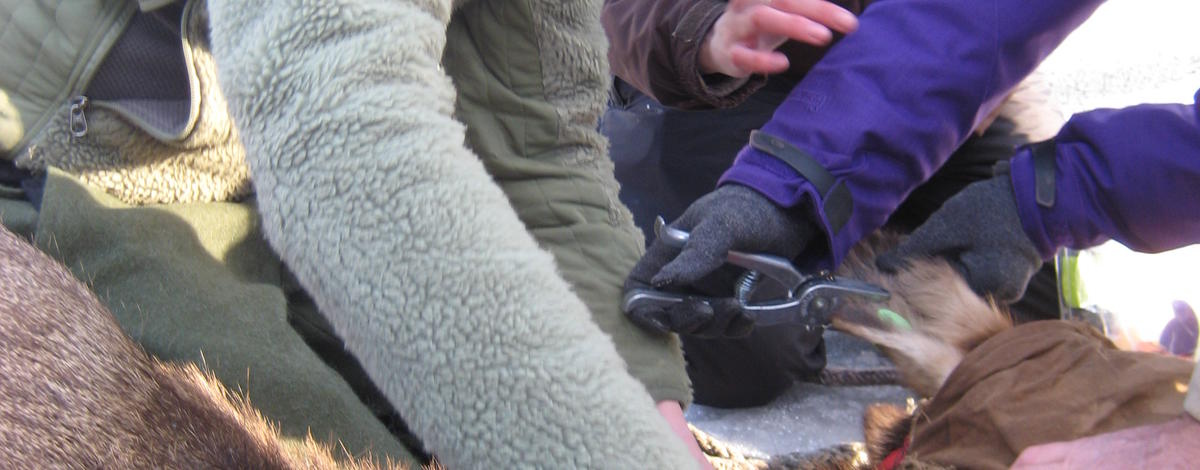Helicopter crews will fly the Silver Valley, North Fork Coeur d’Alene River and St. Joe River drainages to capture and collar elk for the sixth year of an ongoing elk survival study. This data helps inform big game seasons and address factors limiting to herd health and hunting opportunity.
Over the winter, crews will capture up to 60 calves and fit them with a GPS collar. Collars are made to expand as the animal grows and will eventually drop off male calves as they mature, but will remain on cows. Collars track where and when an animal moves. From this, biologists learn about elk habitat use, seasonal movements, and perhaps most importantly, determine how many die and what caused their deaths.
A unique signal is produced if a collared elk is stationary for more than four hours, alerting biologists that the animal may be dead. In that event, crews head to the field to investigate the stationary collar, usually arriving in less than 48 hours.
If an elk is dead, biologists collect clues such as age, body condition, bite marks, and paw prints to determine how the elk died. Wolves, mountain lions and bears have different prey capture and feeding patterns. A sick elk may have parasites or low fat stores. The key is getting to the scene as early as possible, reducing the chance of scavengers and mixed clues.
Since 2014 when the study began, annual cow elk survival has been very high and steady at 94 percent. Survival has been lower and more variable for calves, between 40 to 80 percent.
“The long duration of snow in low elevations the last two winters caused some calves to burn entirely through their fat reserves, which also increased their vulnerability to predators” regional wildlife biologist Barb Moore said.
If you see a helicopter circling in the skies at a low elevation in the Panhandle over the next few weeks, it may be a part of this study.

